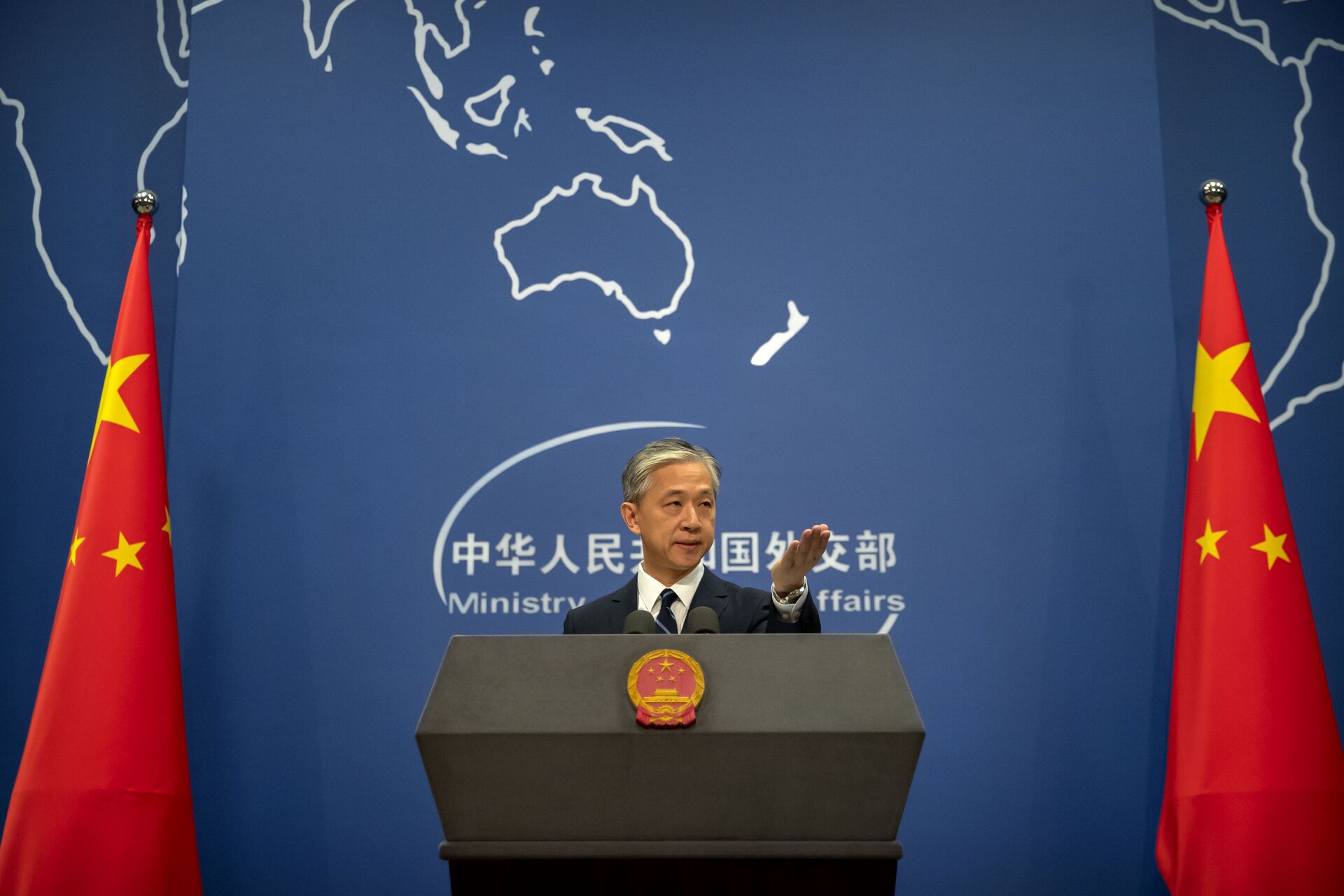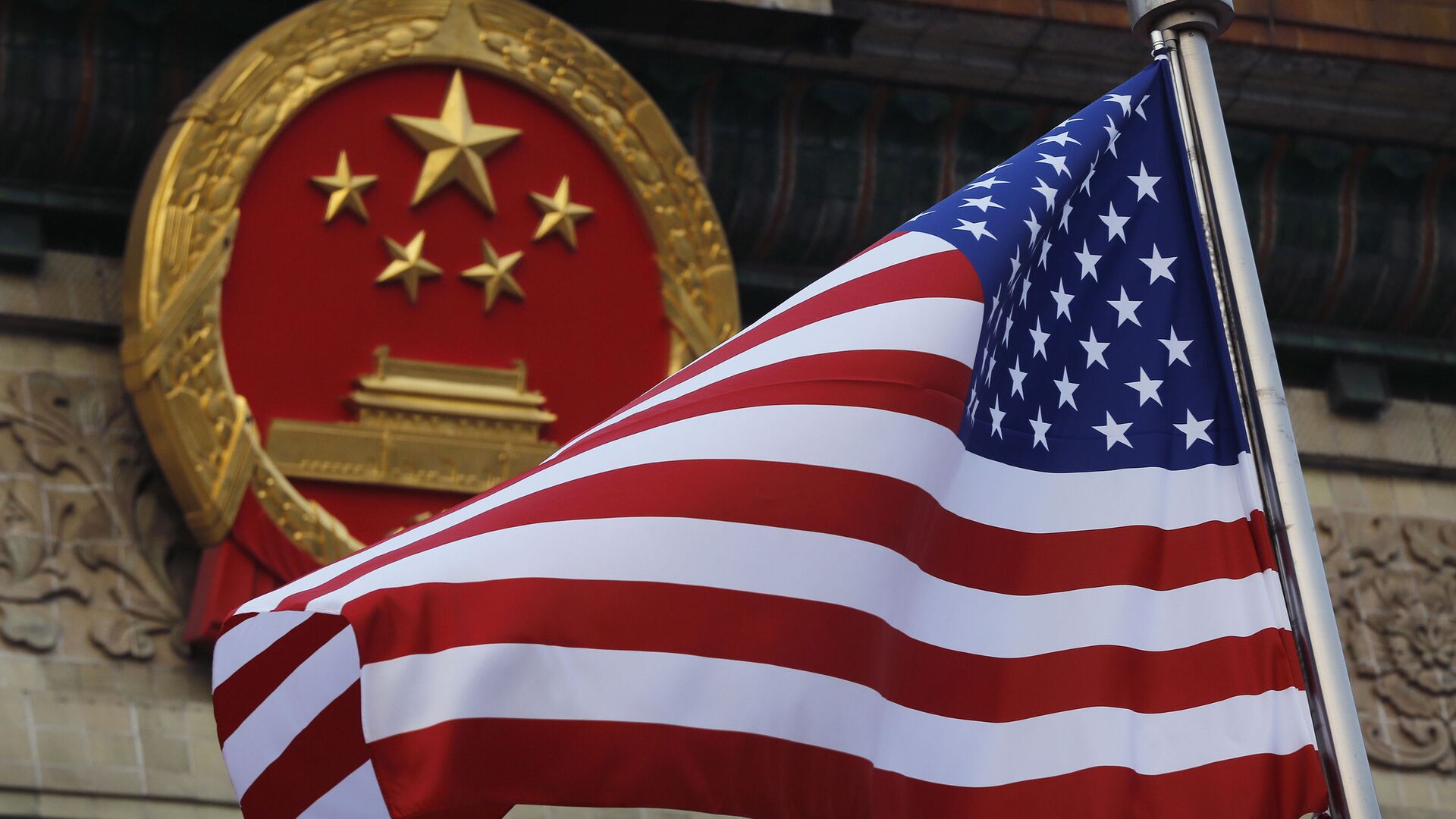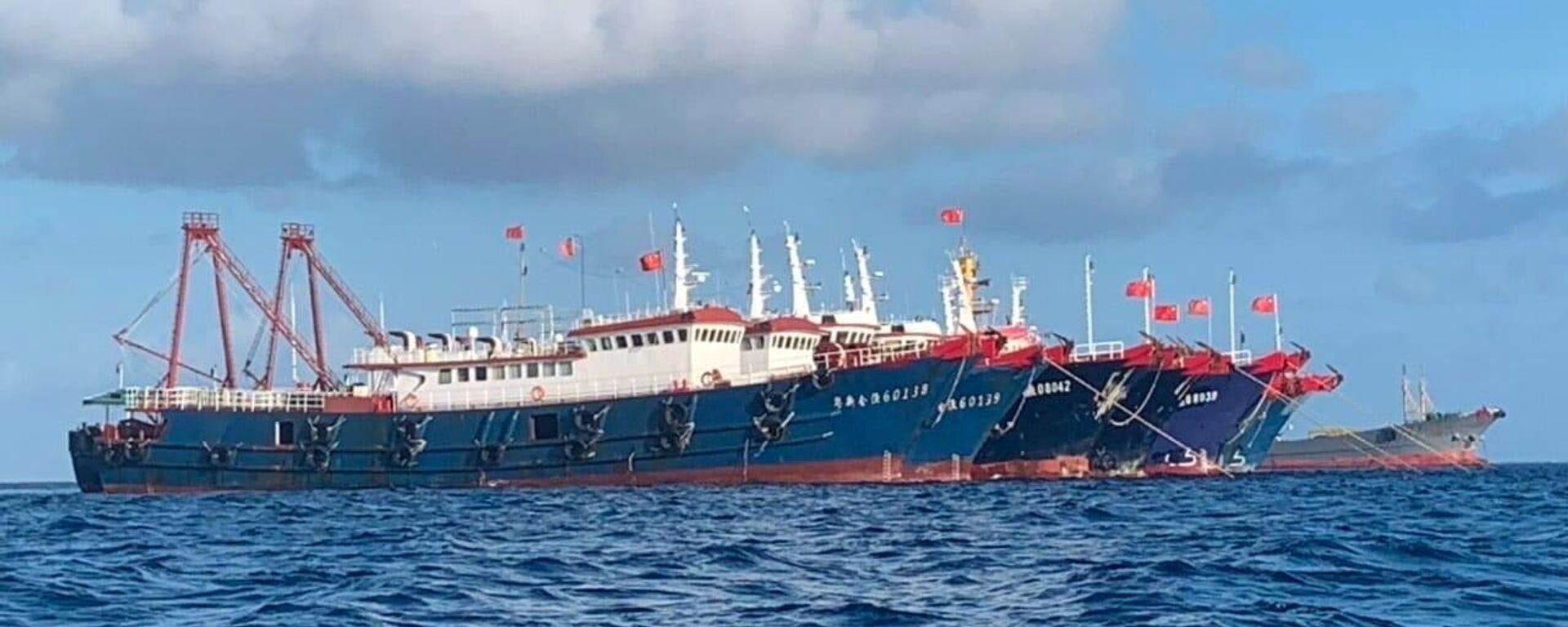China has warned the US against imposing its values on other nations, noting that the two countries should move to a competitive model of relations, not a confrontational one, as US military activities are only increasing under President Joe Biden.
In his daily press briefing on Thursday, Chinese Foreign Ministry spokesman Wang Wenbin expressed a belief that it is natural for the United States and China to compete in certain ways, but both countries must not "beat each other in a wrestling arena" instead of cooperating.
"Cooperation should be upheld as the mainstream of China-US relations. It is natural for the two sides to have competition in some fields, but we should advocate fair competition, like competing with each other for excellence in a racing field, not beating each other in a wrestling arena," Wang said.

Furthermore, in response to Biden's pledges to oppose "unfair trade practices" used by China and several other countries, Wang chastised the US for "violating the market principle of fair competition" as well as "politicizing" problems like the environment, commerce, and technology, referring to the US-China trade war that has raged for years now.
"In recent years, the US has repeatedly violated international rules, and violated the market principle of fair competition. It has politicized and ideologized economic and scientific issues, abused state power to hamstring the development of China and other countries, and undermined the interests of many, provoking outrage from the international community," Wang noted, while adding the US "takes the lead in breaching international rules, a typical behavior of saying one thing and doing another."
Wang also added that China is committed to developing "a relationship featuring non-conflict, non-confrontation, mutual respect and win-win cooperation with the United States," as well as "finding a new path of peaceful coexistence and win-win cooperation."
"That said, China will resolutely safeguard its sovereignty, security and development interests," the Chinese foreign ministry spokesman emphasized.
At the end of his remarks, the representative of the Chinese Foreign Ministry suggested that the "Cold War mentality, zero-sum mindset and ideological bias" practiced by the United States reflects its "lack of self-confidence."
He also expressed the hope that "the US will not let this sour grapes attitude get the better of itself, and look at China's development in a more rational light."
"If it believes itself to be a major country, it should consider behaving like one," Wang concluded.
China Alarmed by Growing US Military Presence in Indo-Pacific
Separately on the same day, Chinese Defense Ministry spokesman Wu Qian said in a statement that the US has sent 20% more warships to maritime territories around China since Biden's inauguration in January this year, while the reconnaissance flights increased by 40% over the same period last year.
"The US frequently sends ships and aircraft to conduct activities in waters and airspace around China, escalating regional militarization and threatening regional peace and stability," Wu said. "China is firmly opposed to that."

The defense ministry spokesman added that China urges the US "side to strictly restrain its troops on the ground, abide by the 'Rules of Behaviour for Safety of Air and Maritime Encounters between China and the US' and 'International Maritime Collision Prevention Regulations,' so as to prevent the recurrence of similar dangerous incidents."
When the United States normalized relations with the People's Republic of China in the 1970s, it decided to accept Beijing's claim to be the sole legitimate representative of the Chinese people. It has, however, continued to provide unofficial assistance to Taiwan, which Beijing considers as interference in its internal affairs.
Under the current Biden administration, the US has continued to send US warships across the Taiwan Strait, which it considers an international sea route. Beijing has denounced it as encouraging separatist movements in Taiwan.
Biden has repeatedly expressed his support for Japan, South Korea, and Taiwan since taking office as part of his policy of "strengthening" partnerships with allies across the world.



